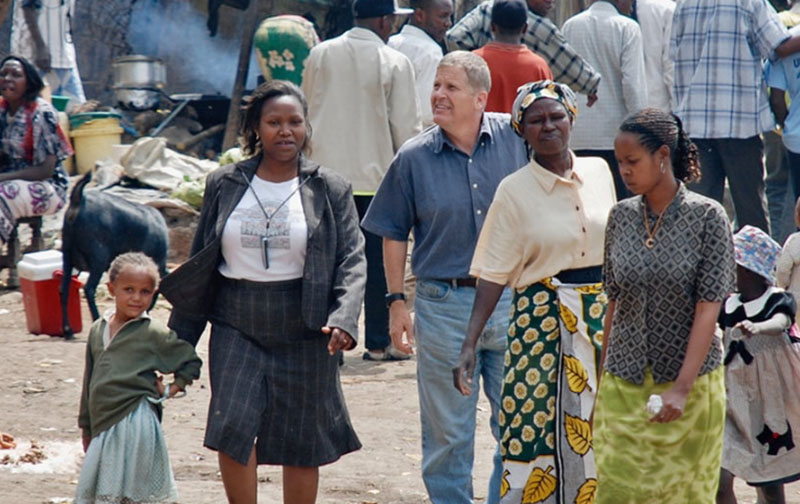
Problem #2: Cultural Insensitivity
Cultural insensitivity can lead to misunderstandings and even offense. It's essential to remember that our ways of doing things aren't always the "right" or "only" ways. If you haven’t spent time in unfamiliar cultures before, this can be a little hard to wrap your head around at first, because a lot of the things we might consider “universal” are actually just the cultural norms we grew up with — things like saying “thank you,” or asking directly for things we want.
Solutions:
- Learn About the Culture: Before your trip, take time to learn about the local culture, customs, and etiquette. Many organizations will give volunteers some cultural orientation before the trip. In Kenya for instance, there are stigmas around the left hand, which is considered unclean. Knowing this beforehand, you can be more careful to avoid handing people things with your left hand.
- Listen and Learn: Once you're there, listen more than you speak. Learn from the locals about their ways of life and perspectives.
Problem #3: Voluntourism
Voluntourism, a blend of volunteering and tourism, is a term to describe mission trips where it’s more about the volunteer’s experience than the community's needs. For instance, while social media can help direct attention to communities in need, it can also motivate people to volunteer based on the content they can create from it, rather than the impact they can have. This can lead to projects that are more about photo opportunities than meaningful change.
Going on a mission trip for the wrong reasons is often a recipe for doing more harm than good, so it’s important to be mindful of your motivations.
Solutions:
- Prioritize Community Needs: While a mission trip can be an inspirational way to see firsthand the impact of a community you’re supporting, ultimately, the trip is about the community, what they need and how you can come alongside to help.
- Reflect on Your Motivations: Ask yourself why you want to go on a mission trip. If it's more about the experience or the photos than the service, consider other ways to engage with the world. There’s nothing wrong with going to Kenya as a tourist for example — it’s a beautiful country with a rich culture and stunning wildlife.
Problem #4: Perpetuating Stereotypes
The narrative of mission trips can sometimes perpetuate harmful stereotypes. The image of Westerners coming to "save" Africa can unintentionally suggest that African communities are helpless or incapable of helping themselves. This not only undermines the dignity and agency of local people, but it also paints an incomplete and inaccurate picture of Africa.
When visiting these communities, you’ll encounter a lot of thoughtful, intelligent, and resourceful individuals who are doing the best they can in a system that doesn’t tend to provide the same opportunities you’re accustomed to at home.
Solutions:
- Promote Empowerment: Instead of presenting ourselves as the "saviors," we should focus on empowering local communities to become self-sufficient. For mission trips, this means working alongside locals, learning from them, and supporting their initiatives. In general, it means supporting programs that help build self-sufficiency in these communities.
- Share Balanced Stories: When sharing about our mission trips, we should avoid focusing only on the hardships or portraying people as helpless. Instead, we should also highlight the strengths, resilience, and capabilities of the local people and communities.
Participating in sustainable mission work
Mission trips offer a unique opportunity to contribute to sustainable change. However, it's essential to address poverty's root causes for lasting impact.
That’s why when MOHI hosts mission trips, the trip is part of a larger program that aims to empower communities to escape the cycle of poverty. By focusing on a holistic approach, we can make sure each community has the education, skills, and spiritual guidance to thrive.
On a mission trip with MOHI, you'll immerse in local culture, participate in community work, and build relationships with students, including your sponsored child. These experiences supplement MOHI's ongoing work, providing a hands-on opportunity to contribute to sustainable projects.
By prioritizing community needs, promoting empowerment, and respecting local culture, your mission trip can have a long-lasting, positive impact.


Comments